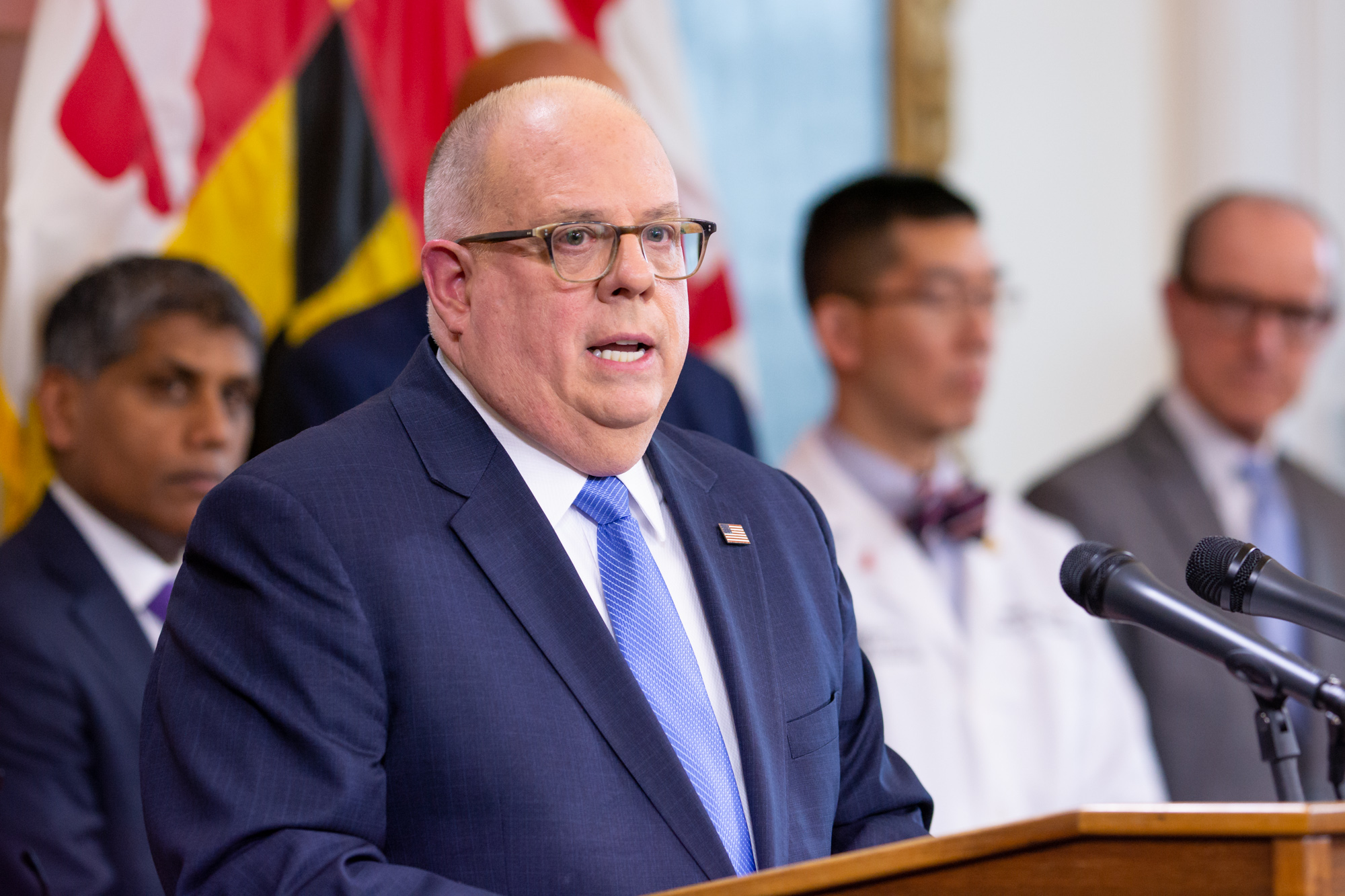All Maryland hospitals and nursing homes will receive doses of the coronavirus vaccine in the next two weeks, Gov. Larry Hogan announced in a press conference Tuesday.
The Maryland National Guard has been reactivated to help with the vaccine distribution. Initial shipments of the recently approved Pfizer vaccine have begun to arrive in the state, and several hospital health care workers have received the vaccination.
“After all that we’ve been through in 2020, yesterday truly was a day of hope,” Hogan said. “While we still have several months ahead of us, this is a turning point.”
As of Tuesday, more than 5,000 Marylanders and 300,000 Americans have died of the coronavirus. The state has seen more than 1,000 confirmed cases for 42 straight days, and the current seven-day positive rate is 7.53 percent.
Hospitalizations are still on the rise in the state, with 88 percent of staffed beds currently filled and 1,799 Marylanders currently hospitalized — the highest total the state has seen yet.
Over the next two weeks, all hospitals will have doses to begin the vaccination of their critical frontline staff, said Dr. Jinlene Chan, the state’s acting public health health services deputy secretary. All nursing homes and assisted living facilities will also have their vaccination programs begin in the same time period.
Health care workers in hospitals and nursing home staff and residents are part of the highest priority group for vaccines in the state.
The National Guard will provide state health officials with logistical support for vaccination planning and operations and to help points of vaccine distribution across the state, Hogan said.
As more vaccines become available, Hogan said, the guard will ramp up its efforts and help with the setup of mobile distribution clinics.
The Pfizer vaccine, which has shown about 95 percent efficacy in preventing the coronavirus, was approved on Friday. The Moderna vaccine, which has been shown to have about 94 percent efficacy, is set to be reviewed by the FDA this week.
[Map: These Maryland hospitals are expected to receive Pfizer’s COVID-19 vaccine]
The state is projected to receive about 300,000 doses of vaccines by the end of this month, but this is subject to change based on federal allocation, Chan said. Both the Pfizer vaccine and the Moderna vaccine require two doses to be effective.
There are about 850,000 people in Phase One, so the state will need close to one million doses before it will be able to expand into Phase Two, Chan said. Phase Two will include essential frontline workers such as teachers and child care providers.
Public outreach about the safety and efficacy of the vaccine is a crucial part of this process, Chan said. The governor’s office of community initiatives and the health department’s office of minority health and health disparities have been working on a multilingual education campaign to further educate and engage communities, Chan said.
“That coordination and discussion is important,” Chan said. “It is important that we listen and that we answer questions.”
People in clinical trials for the vaccines have experienced some symptoms, including injection site soreness, low-grade fever and fatigue, but those are all signs the vaccines are working, Chan said.
State officials emphasized the importance of using reputable sources to make decisions about vaccinations. The state health department will be launching a new public COVID-19 vaccine dashboard soon, Chan said, which will show how many people have been vaccinated by county, age, race and other important demographic information.
Both Hogan and Dr. David Marcozzi, the state’s COVID-19 incident commander and senior medical adviser to the governor, said they are excited to receive the vaccine.
“I’m going to do it as soon as it becomes available to me,” Hogan said. “But I’m not going to jump the line.”



